Home | Communication | Position papers
Position papers
Position papers are a cornerstone of EBC’s advocacy efforts, providing clear and concise statements on key issues affecting the European construction sector. These documents outline our views, priorities, and recommendations on policies and initiatives that shape the industry’s future.
Each position paper reflects the collective voice of construction SMEs and craftsmen, addressing challenges and opportunities in areas such as sustainability, innovation, the labor market, and economic growth. Through these papers, EBC engages with European policymakers, stakeholders, and industry partners to influence decisions that impact the sector at national and EU levels.
Our position papers are more than just advocacy tools; they are a resource for understanding the evolving needs of the construction industry and the crucial role SMEs play in driving progress. Explore this section to gain insights into EBC’s policy stances and how we are working to shape a fair, dynamic, and sustainable construction ecosystem.
Position paper on the Late Payment Directive (06/02/2025)
Economy
EBC welcomes the CJEU ruling on 6 February, clarifying that payment terms exceeding 60 days are valid only if explicitly agreed by both parties. We urge EU co-legislators to strengthen the legal framework to better protect SMEs from late payments.
Position paper on skills and labour needs in the EU construction sector
Social Affairs
Addressing critical labour shortages, EBC outlines strategies to attract and retain talent in the construction sector. Key recommendations include promoting vocational training, supporting apprenticeships, and integrating green and digital skills. EBC also highlights the importance of inclusive policies to encourage female participation and the potential role of migration in addressing workforce gaps
Position paper on the Late Payment Directive
Economy
EBC develops the call for actions from construction SMEs and crafts to further improve payment behaviour of enterprises and public authorities through an ambitious revision of the directive, based on the principle of zero tolerance for long payment terms and late payment.
ECCREDI joint position paper on Horizon Europe and Built environment and construction as a priority
Digitalisation
This paper calls for a comprehensive approach within the Horizon Europe program by establishing a Co-programmed European Partnership on the Built Environment and Construction. The vision emphasizes smart, energy-efficient, and inclusive cities by 2050, supported by innovative technologies and circular economy principles. The ECCREDI paper underscores the need for cross-sectoral collaboration, integration of digital technologies, and strategic investment to modernize the built environment and promote sustainable development.
EBC position paper on VAT rates
Summarize
EBC position paper on the special VAT scheme for small enterprises
Summarize
EBC Position paper on the Late Payment Directive
Economy
EBC develops the call for actions from construction SMEs and crafts to further improve payment behaviour of enterprises and public authorities through an ambitious revision of the directive, based on the principle of zero tolerance for long payment terms and late payment.
Declaration on Circular Economy in Construction
This document stresses the need for a circular economy approach within the construction sector, endorse by EBC, FIEC, CPE, CECE, SBS, EDA, ECOS and EEB. It identifies challenges such as reluctance to use recycled materials due to quality concerns, inconsistent supply, and regulatory barriers. The paper advocates for policy coherence, better market incentives, and improved construction design to enhance recycling and reuse rates
Construction 2050 paper: Building tomorrow’s Europe today
Digitalisation
Major European construction representatives have united, to stress their commitment to the extension of the existing programme in the form of the “Construction 2050: Building tomorrow’s Europe today” initiative. They advocate a holistic policy framework to address challenges in the construction sector, including decarbonization, digital transformation, and workforce skills.
